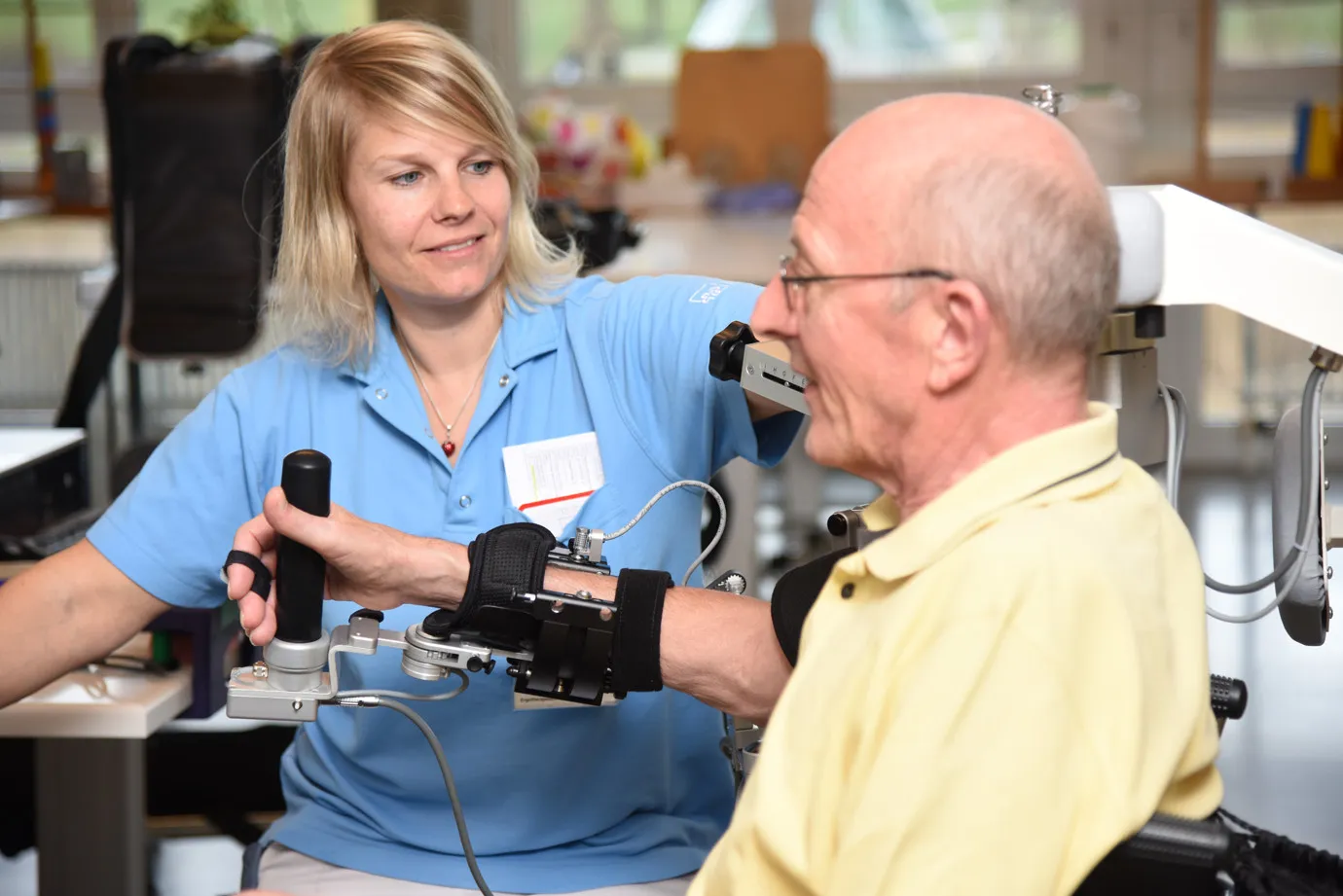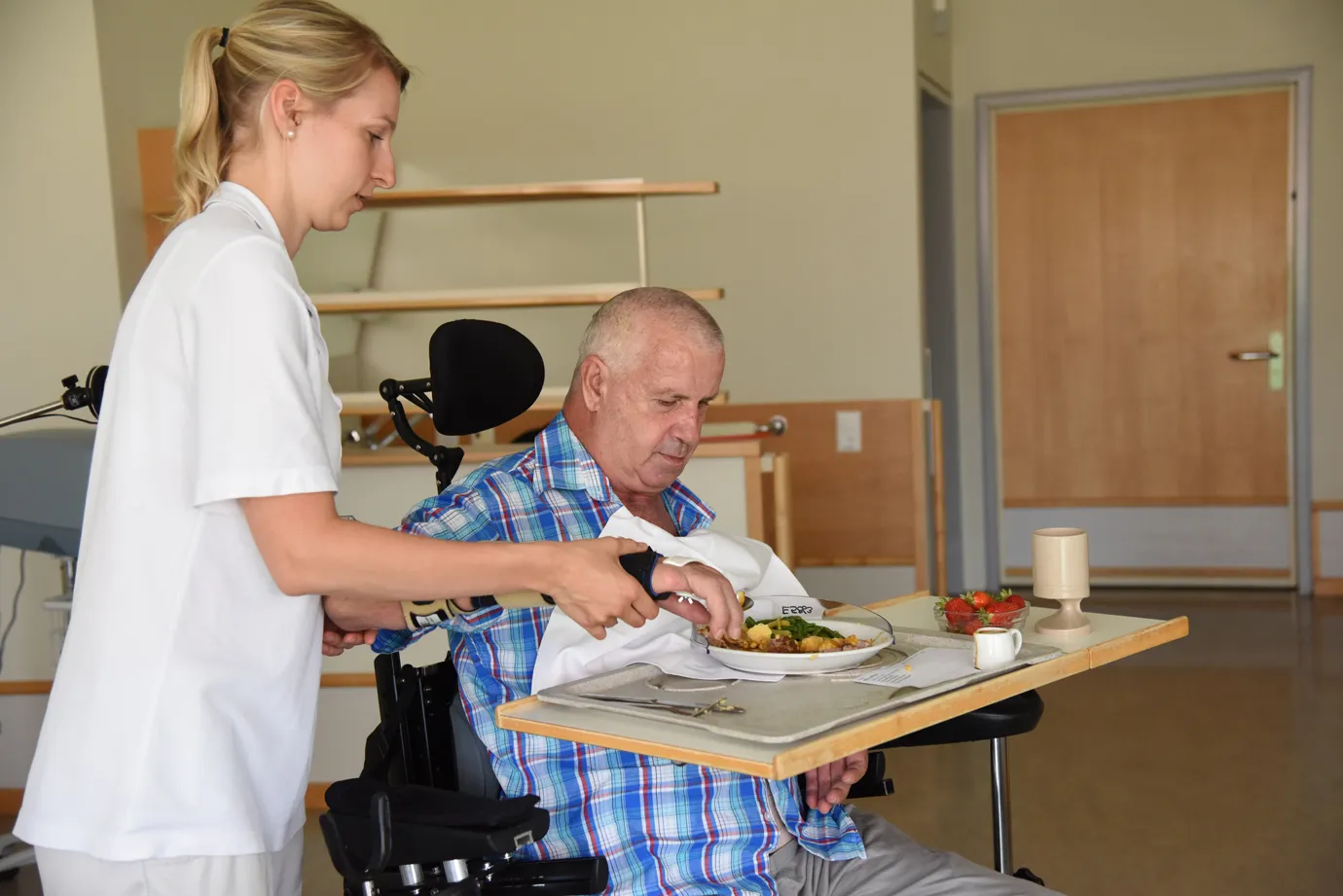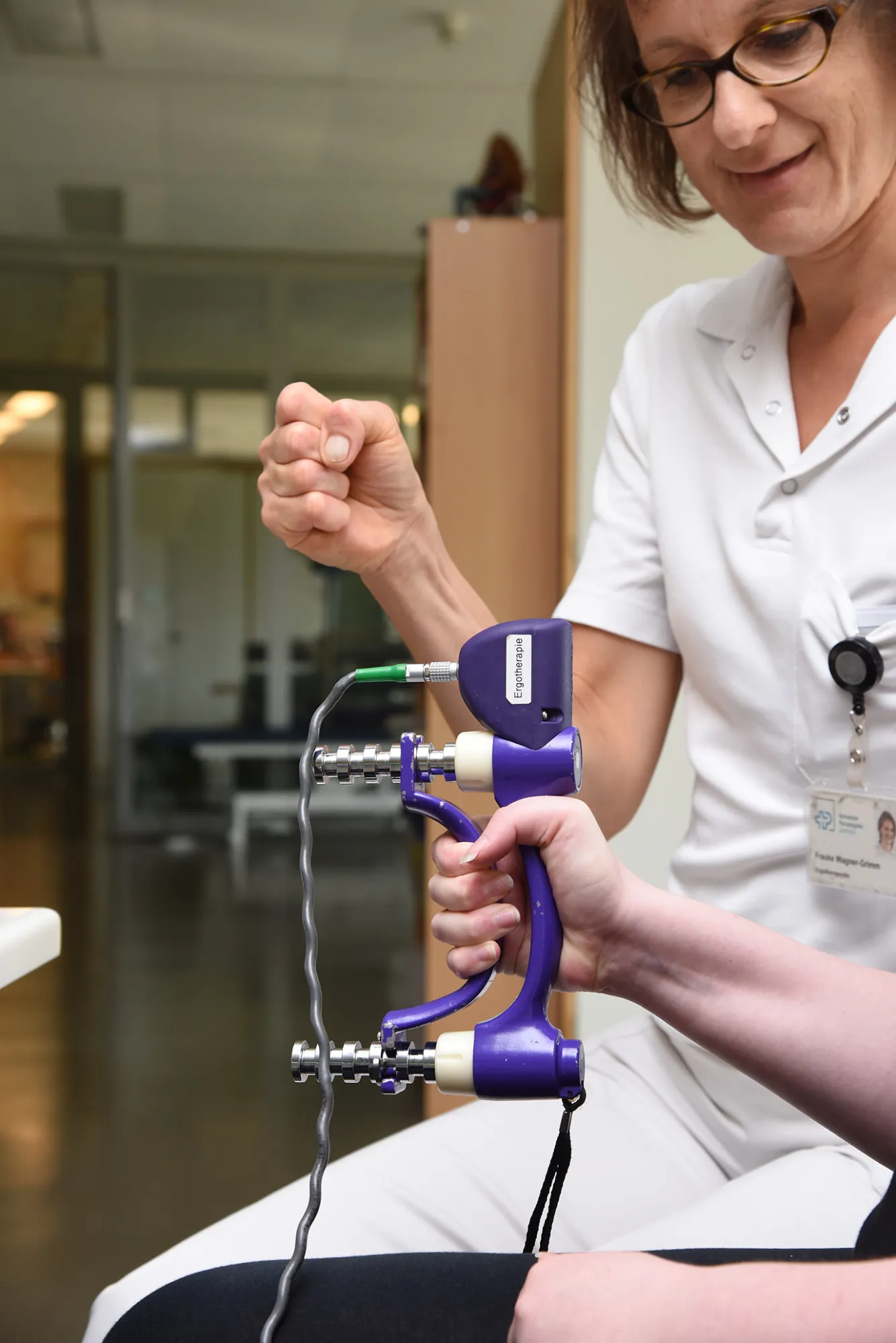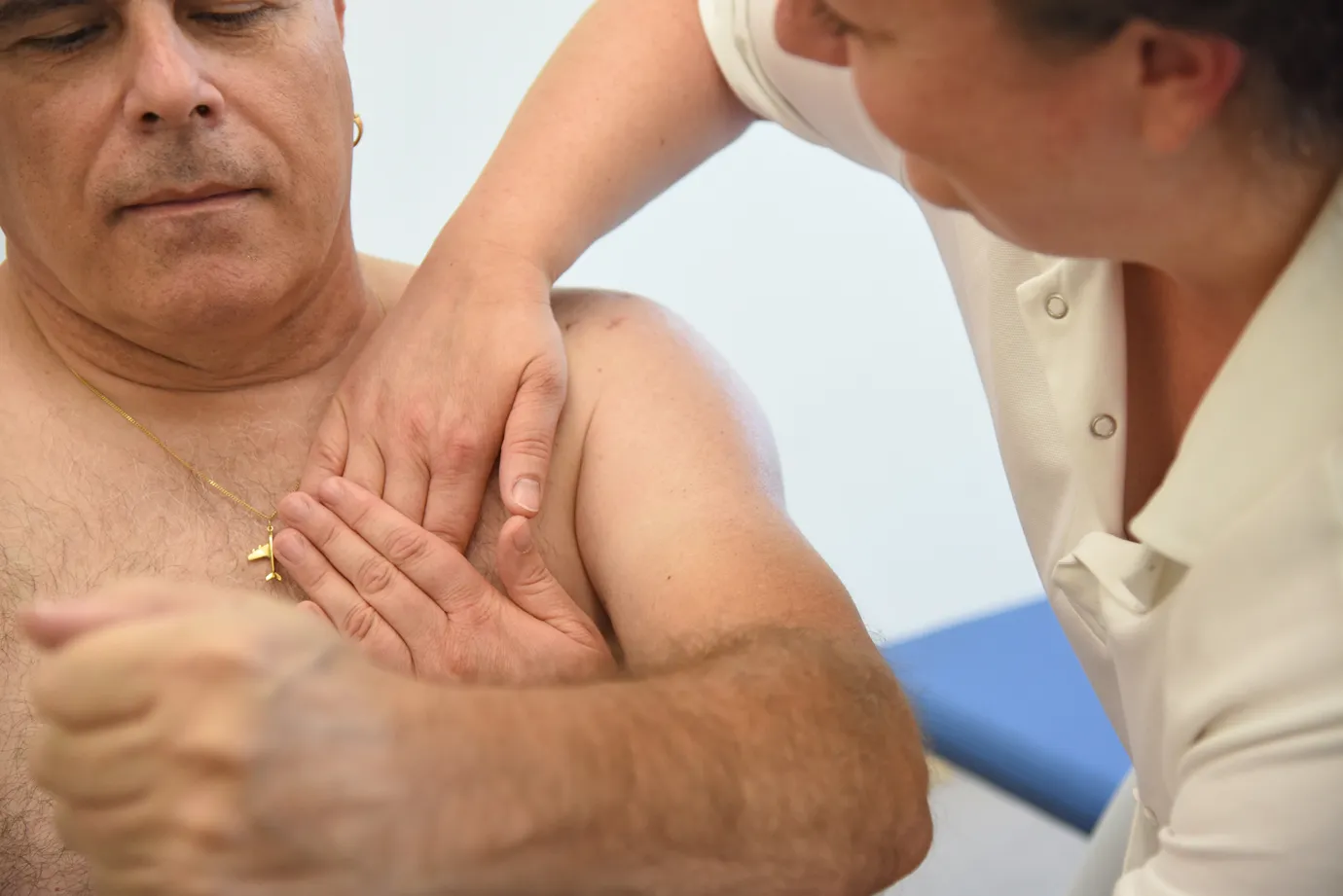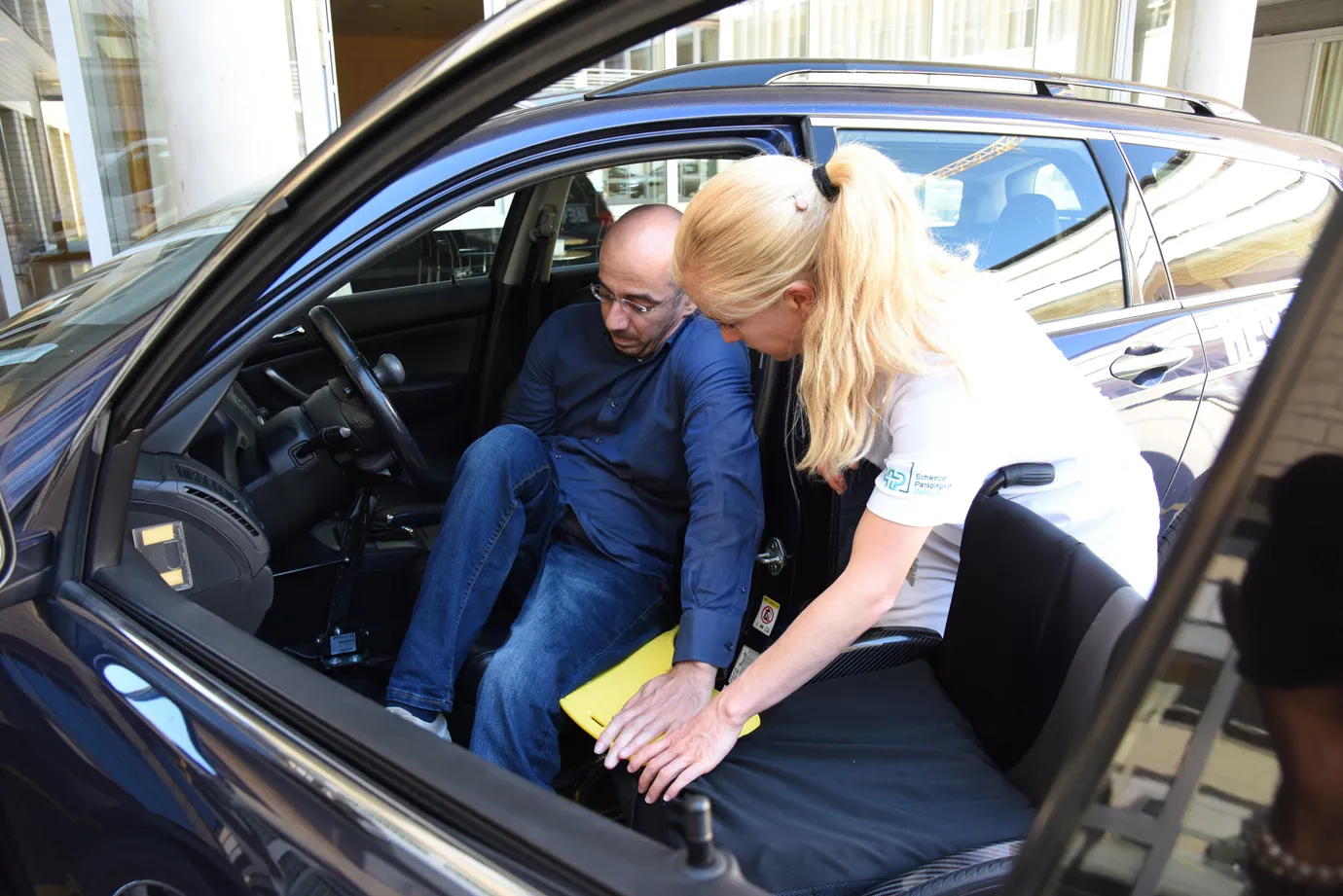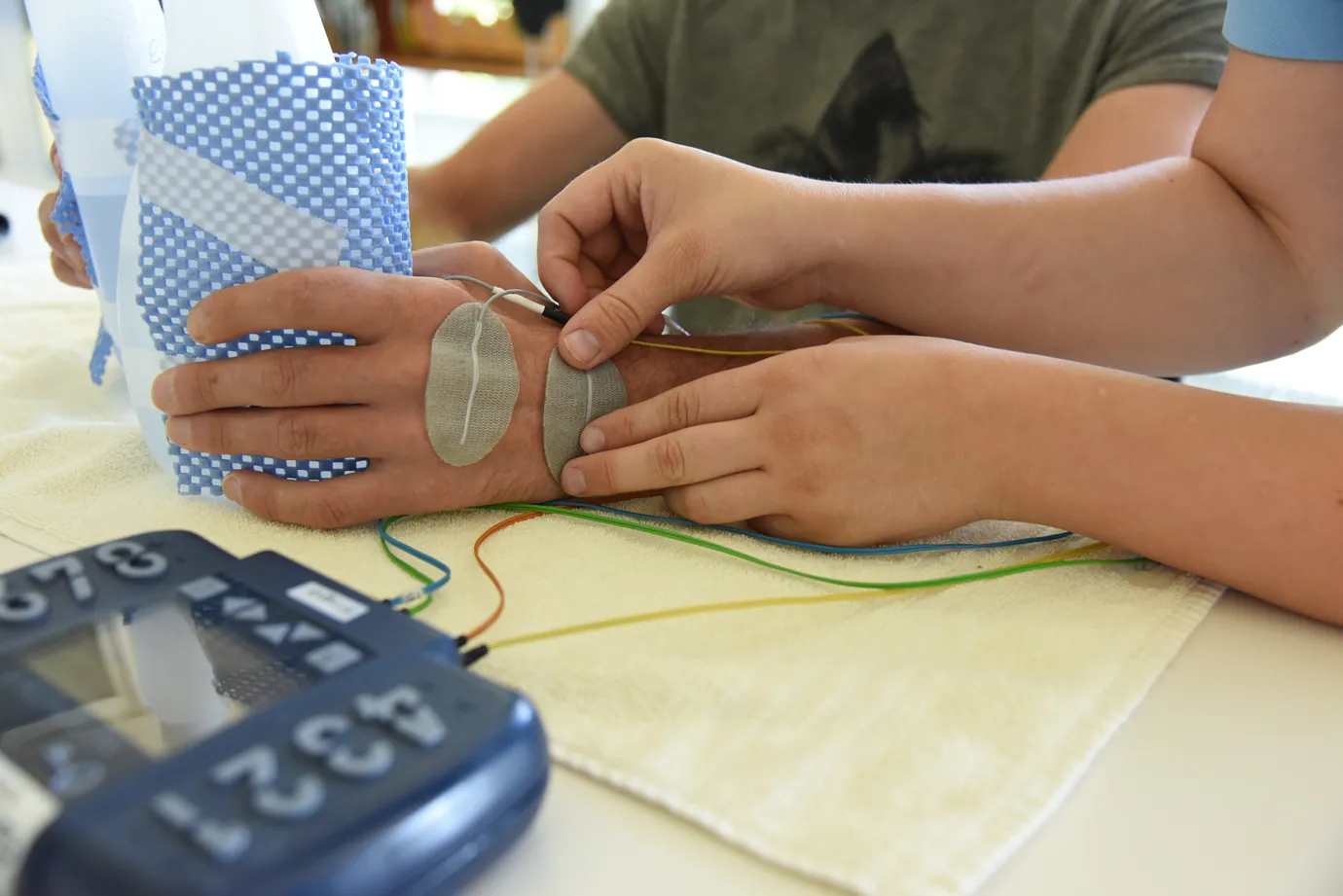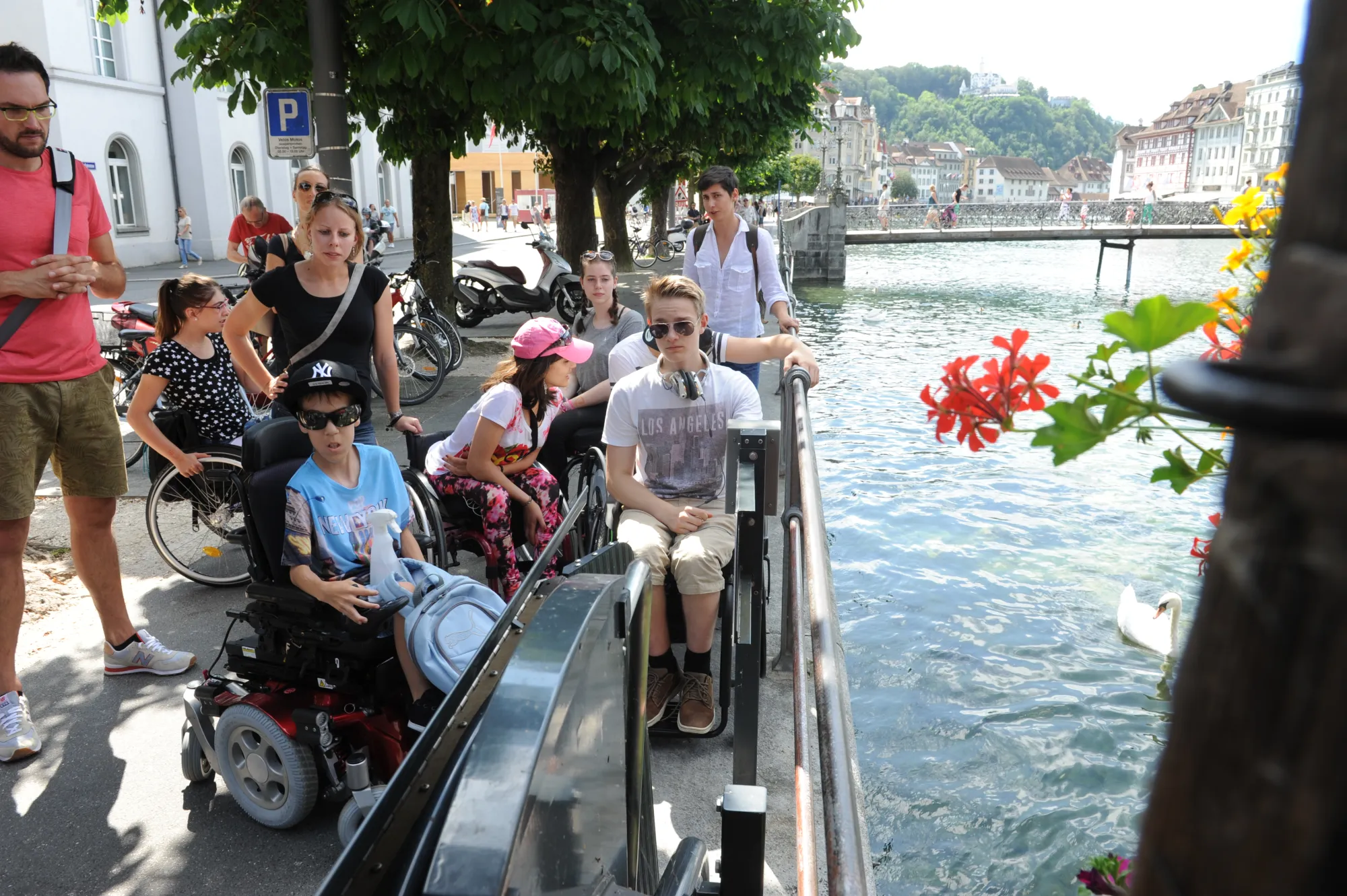

The Swiss Paraplegic Centre uses occupational therapy to support patients whose activities are limited by various clinical conditions. The aim is to facilitate self-sufficiency, making work pursuits possible as well as leisure and relaxation in order to enable patients to reintegrate into the world of work and to participate in social life.
Skilled and personalised care
Our trained staff provide skilled and personalised guidance and care. They specialise in rehabilitating patients with spinal cord injuries, as well as diseases or injuries of the spine. We treat inpatients and outpatients from all over Switzerland and the world, providing expert follow-up care. Our mission is to work with patients and support them as they reintegrate into their everyday life with as much self-reliance as possible, thereby achieving the best possible quality of life.
This holistically oriented therapy works on physiological, psychological-pedagogical and social aspects.
Robotics in occupational therapy
Areas
Treatments we offer
Professional groups
To aid quality assurance and enable the implementation of new evidence-based knowledge in our treatments, our therapy area includes specialist groups with the following focus areas:
Information
Our specialists
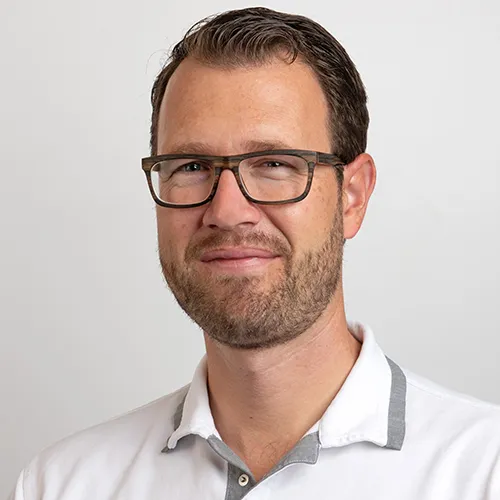
Pirmin Oberson
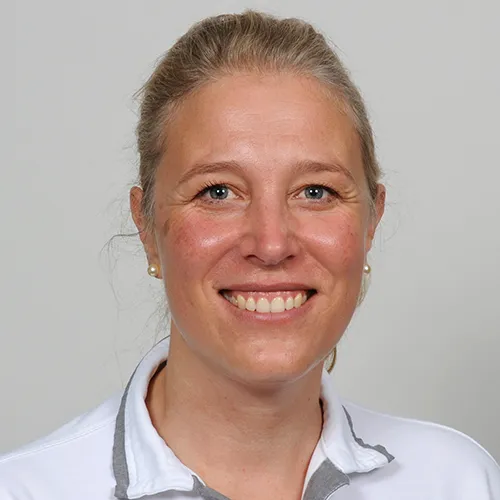
Jessica Decker
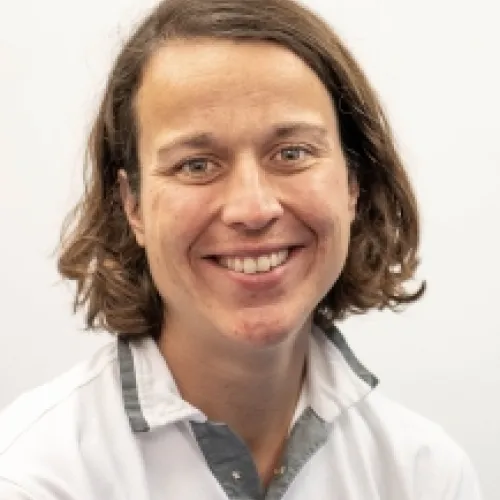
Anna Schär
Contact
Occupational Therapy, Administration office
Administration office hours
Monday to Thursday
7.30 am to midday
1 pm to 5 pm
Friday
7.30 am to midday
1 pm to 4 pm
Downloads
You may also be interested in
- Deutschsprachige Medizinische Gesellschaft für Paraplegie e.V. (DMGP) (German-speaking Society for Paraplegia)
- DMGP Arbeitskreis Ergotherapie (Occupational therapy working group)
- Ergotherapeutinnen Verband Schweiz (Swiss Association of Occupational Therapists)
- Schweizerische Gesellschaft für Handrehabilitation (Swiss Society for Hand Rehabilitation)
- European Network of Occupational Therapy in Higher Education
- Zurich University of Applied Sciences, School of Health Professions
- World Federation of Occupational Therapists
- eLearn SCI
- Hilfsmittel-Markt GmbH (Occasions-Hilfsmittel)
- International Network of SCI Occupational Therapists (SCIOT)
Werden Sie jetzt Mitglied und erhalten Sie im Ernstfall 250 000 Franken.
Spenden Sie jetzt und unterstützen Sie unsere Projekte zugunsten von Querschnittgelähmten.

